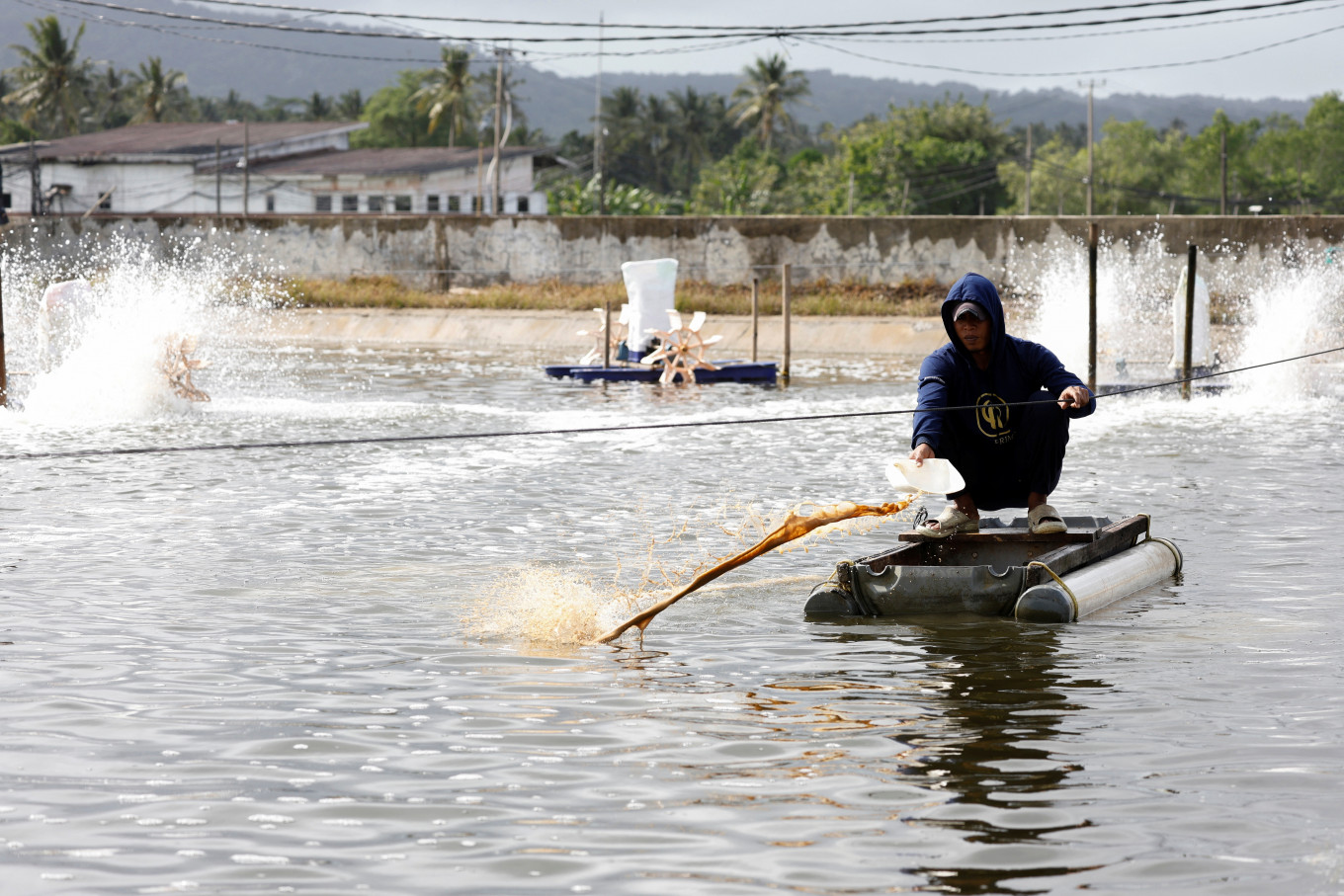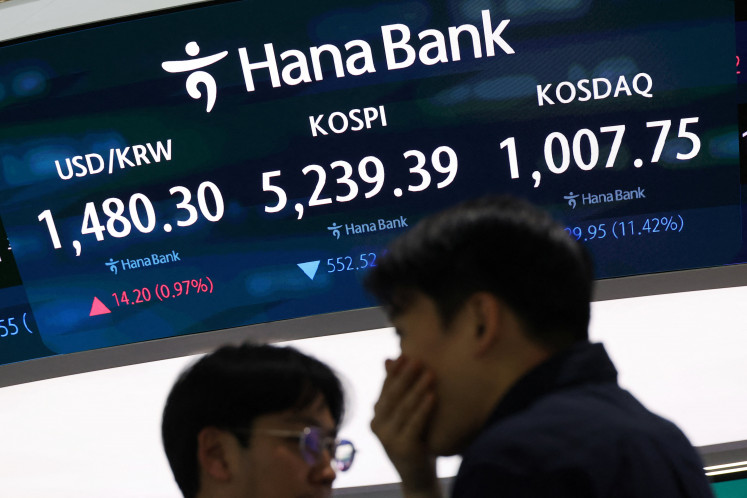Popular Reads
Top Results
Can't find what you're looking for?
View all search resultsPopular Reads
Top Results
Can't find what you're looking for?
View all search resultsShrimp industry suffers after radioactive case, association says
The shrimp was processed at an industrial estate near Jakarta that was later found to be contaminated with of Cesium 137 and the country's nuclear agency is seeking to pinpoint the size of the area affected.
Change text size
Gift Premium Articles
to Anyone
I
ndonesia's shrimp industry suffered a 30-35 percent drop in processing absorption after a radioactive contamination was detected in a batch of shrimp shipped to the US in August, the country's shrimp farmers' association said on Friday.
The shrimp was processed at an industrial estate near Jakarta that was later found to be contaminated with of Cesium 137 and the country's nuclear agency is seeking to pinpoint the size of the area affected.
Indonesia is the world's fifth largest shrimp exporter, accounting for 6 percent of global exports. About two-thirds of its exports go to the United States.
While the radioactive finding was in just one shrimp consignment from one company, PT Bahari Makmur Sejati (BMS), US and other foreign buyers are now waiting to determine whether all shrimp from Indonesia is safe, said Andi Tamsil, the head of Indonesia's shrimp farmers' association.
Prices have fallen by up to 35 percent in several regions, he said.
"Since BMS was added to the US Food and Drug Administration's red list, shrimp absorption from farmers has decreased by around 30 percent-35 percent," Tamsil told Reuters.
In 2024, Indonesia exported about 215,000 tonnes of shrimp, valued at about $1.7 billion, according to government data. The US is the main market for Indonesian shrimp, accounting for 63.7 percent of the total exports, followed by Japan.
"If this continues, millions of households that depend on this industry from upstream to downstream are at risk of losing their jobs," Tamsil said.
The shrimp industry had become the victim of negligence and the incident had shaken public confidence, he added. "This fatal mistake has caused the US to question the safety of our food."
Indonesia established a task force after the US FDA issued an advisory to American consumers, distributors and sellers not to eat, sell or serve frozen shrimp imported by BMS, doing business as BMS Foods, after their products were associated with Cesium 137 contamination.
So far, the US FDA has listed 10 brands associated with BMS.
Cesium 137 is present in the environment mainly from past nuclear testing or accidents, like Chernobyl and Fukushima, according to the FDA's website.











